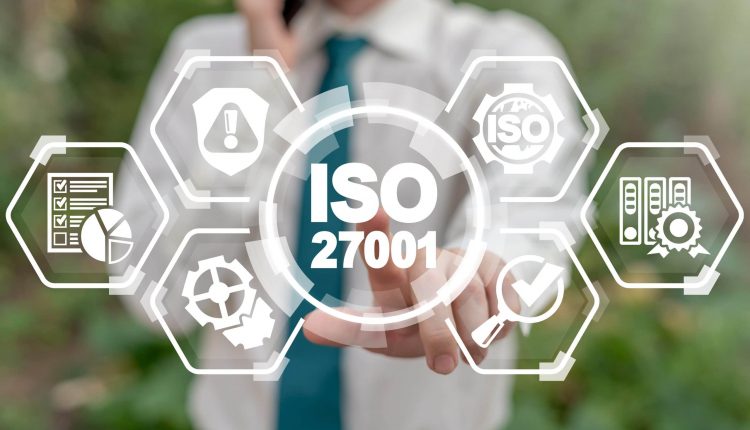What Is ISO 27001 Framework?
ISO 27001, widely known as ISO/IEC 27001, is an international standard for information security management. It was produced jointly by the International Organization for Standardization (ISO) and the International Electrotechnical Commission (IEC) in 2005, as suggested by the name. Both organizations are global standards-setting bodies with a strong track record. ISO 27001 certification is a part of the ISO 27000 set of information security standards.
The certification encourages any firm to manage the security of assets such as financial data, intellectual property, employee information, and information provided by third parties. It outlines the prerequisites for creating, implementing, maintaining, and enhancing an information security management system (ISMS).
It was created to help large and small businesses get a competitive edge and better secure their information in a systematic and cost-effective manner. ISO 27001 certification defines information security norms and regulations meant to safeguard an organization’s data assets.
The Evolution of ISO 27001
ISO 27001 has undergone minor modifications since its first publication in 2005. The first update came out in 2013, followed by the second in 2017. There are minor phrasing adjustments in Annex A covering some of the controls. The first refers to an asset. Entities are required to establish an inventory of assets related to information in the 2013 edition.
In 2017, information was particularly identified as an asset. As a result, there is a demand for inventory data. This demonstrates a shift in perspective on information, which is now inventoried in the same way as physical assets. Additional changes indicated approvals and accreditation by other bodies.

The Importance of ISO 27001
Many businesses and people are concerned about information security concerns. These include unauthorized access, theft of intellectual property or data, and much more. ISO 27001 is a framework that helps organizations create, implement, run, monitor, review, maintain, and constantly improve an ISMS. It also designs policies, processes, and employee training as an element of how firms should manage risks connected with information security risks.
Although it is not obligatory to adopt ISO 27001 in businesses, the benefits it may provide to overall information security management may persuade them to do so. This is one reason that, in the last 10 years, the number of certificates has increased by more than 450 percent. By implementing it, the standard can help in compliance with various information security laws. This in turn helps in minimizing the expense of data breaches. It also fosters trust and develops a reputation.
Clauses and Controls
The standard is divided into two sections. The primary segment consists of 11 clauses namely, 0 to 10. The ISO 27001 standard is introduced in clauses 0 to 3 which talk about introduction, scope, normative references, and terms and definitions. The following clauses 4 through 10 specify ISO 27001 standards that must be met if the firm is to comply with the standard.
The second section incorporates Annex A, which contains guidelines for 114 control goals and controls. There are 114 controls divided into 14 groups and 35 categories. Technological, organizational, legal, physical, and human controls are all examples of controls. From A.5 Information Security Policies to A.18 Compliance, the list provides controls for satisfying ISO 27001 standards and maintaining an ISMS. The clauses and their requirements are supported by Annex A of the standard, which includes a list of controls that are not necessary but are chosen as part of the risk management process.
How to apply for the ISO 27001 certification?
Organizations, as well as individuals within them, can be certified. To become certified, a company must request a recognized certification body to conduct a certification audit. It is generally a three-stage process, which can take up to 3 to 12 months to complete.
The organization is given an ISO 27001 accreditation if it passes the audit. This certificate verifies that the company is completely compliant. The certificate is valid for a three-year duration. The cost of ISO/IEC 27001 certification for businesses is determined by a variety of factors such as training and literature, employee effort, cost of the registrar, external assistance, etc.
The ultimate motive of ISO 27001 is to protect an organization’s information confidentiality, integrity, and availability. ISO 27001’s fundamental concept is built on a risk-management process: discovering where the risks are, and then using risk treatment and prevention measures. Hence, compliance will not only improve information security management, but it will also give a mechanism to verify it, if necessary.
